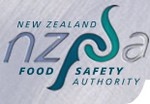Author’s interpretation wrong
The New Zealand Food Safety Authority (NZFSA) continues to affirm that there is no safety issue with A1 milk.
“Keith Woodford’s paperback offers no new evidence about the safety of milk,” says Carole Inkster, NZFSA Director (Joint Food Standards). “He is welcome to his opinion on this subject, however we are very concerned at the possible negative health impact that could occur, particularly for children and pregnant women, if people stop drinking milk.
“This position is shared by international experts in most other countries where A1 milk has been consumed for thousands of years. Keith Woodford clearly has a personal interest in this area but is not a recognised expert in the medical or biochemical fields (he is a professor of farm management and agribusiness). His paperback and the hypothesis it presents has not been published by a medical, scientific or university publisher and it is not clear if his interpretation of the science has been peer reviewed.
“His latest ‘working document’ is further conjecture and opinion. There are many errors of interpretation. One of the most basic is his concern that NZFSA had a view about milk before commissioning the review. We certainly had a position, as did the Ministry of Health before us, and presumably many other New Zealand government agencies involved in the food area over the last 100 years or so.
“Milk is an important source of nutrition and, since the advent of pasteurisation, has been supported as a safe and nutritious food in New Zealand and globally. Professor Swinburn’s review presented no conclusive evidence to change that position. Another misinterpretation relates to the reference to advice by Food Standards Australia New Zealand (FSANZ). Keith Woodford uses the statement ‘FSANZ recommends that milk should continue to be regarded as a safe and nutritious component of the diet for most people’ as if it refers to A1 milk. ‘For most people’ is actually a reference to those who have dairy allergies - they can drink neither type of milk. People reading Keith Woodford’s paperback, should ask how much else is similarly confused.”
Carole Inkster says NZFSA takes very seriously its government-mandated responsibility to protect consumer health through ensuring New Zealanders have access to safe, and in this case, nutritious food.
“Keith Woodford appears to be confused about the roles of NZFSA as a body responsible for public health and safety.
“NZFSA has no conflict in its two roles of protecting and promoting public health and facilitating market access. Unsafe food would have no access to any markets. One of our roles is to provide assurance to the governments of importing country about the safety of New Zealand food exports.
“He also appears to be confused over the purpose of the original report. It was commissioned to determine whether there was basis to the health claims being made by A2 Corporation about its product. At the time of the report’s release we made sure to avoid any confusion by stating – as we and the world’s other food safety agencies continue to state – that milk is safe to drink and a good source of nutrition in a balanced diet.”
NZFSA has no concerns about the conspiracy claims made in the ‘working document’.
“Everyone is welcome to their opinion and to draw their own conclusions. The only concern that we have is that the claims being made by Keith Woodford could lead some people to decide to avoid milk altogether. Milk should continue to be regarded as a safe and nutritious component of the diet for all except people with dairy allergies.
“There is no conclusive evidence that one type of milk is any safer than the other but we will continue to monitor the science.”
Ends
